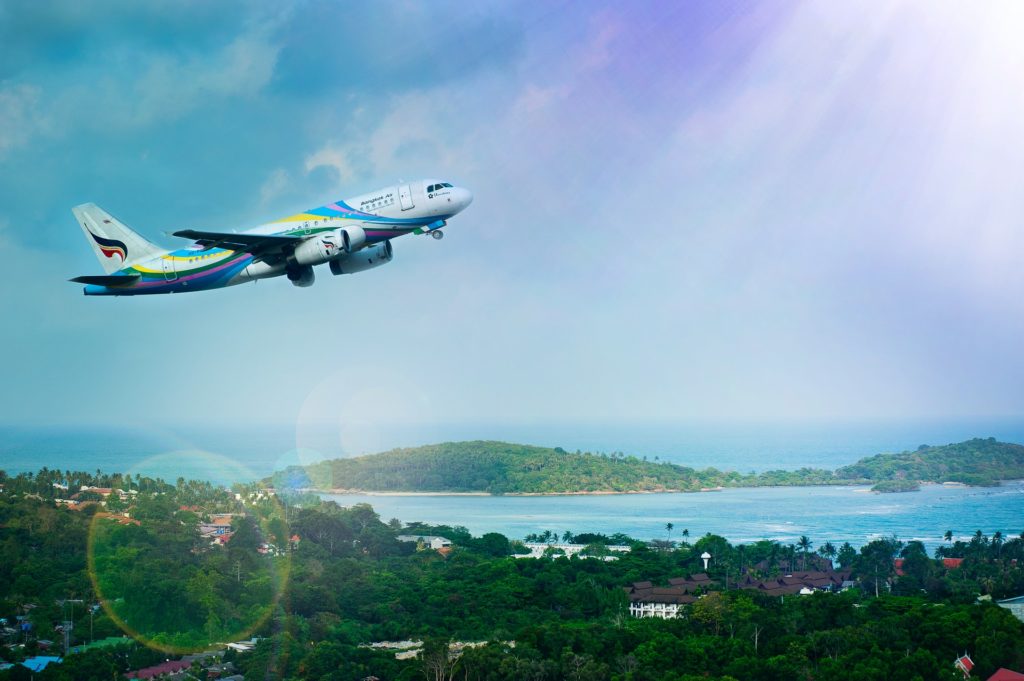Vaccines, Testing Protocols and More: How COVID policies may affect travel in the coming months
January 15, 2021

How will vaccines affect my ability to travel?
In the past week we’ve started getting calls from potential visitors to Anguilla – a few have been vaccinated or anticipate being vaccinated before their trip. How does that affect testing, quarantine, etc? It’s the natural next question for most of us traveling. Widespread distribution of the vaccine seems like the end game for everyone, and the way for the world to return to normal in some way. But for those of us that get vaccinated, will that change travel in the immediate future?
I think about this in our own context with our travel to Kenya coming up in just a couple of months’ time. My parents’ COVID vaccines will possibly be available in the coming weeks, which helps us feel much more at ease with the idea of travel. That said, the global framework and policymaking haven’t caught up yet, so will that change anything in terms of how proof of a vaccine will affect travel? In the coming months, hopefully we’ll see policies being created as more and more people are vaccinated but in the near term, the likelihood is that we’ll still need tests for travel and will need to abide by the rules and regs for the countries we’re visiting. How destinations handle vaccination records will likely differ from country to country, and that may differ from broader policies related to air travel.
For smaller nations, the focus is more on when the local population is vaccinated to a certain percentage. In Anguilla, for example, they’re hoping to have 70% of the local population immunized to ensure local health before really altering any policies for travelers. When you consider that our population hovers around 14,000 people (only about half of which are in the workforce), the idea of achieving that level of vaccination seems like a much less daunting prospect. In the meantime, things may shift on a slower scale, but testing and quarantine protocols likely won’t be done away with entirely until the local population is accounted for. For larger areas where the distribution will take place over a longer period of time, the changes may come in more gradual ways with relation to testing requirements, quarantine regulations, etc.

COVID Testing Required for Return to the US
Then there’s our newest piece of the puzzle: beginning January 26th, international travelers bound for the US must show proof of a negative COVID test (PCR or rapid antigen tests) taken 72 hours or less prior to travel, which has left a number of people planning their trips a bit concerned. Is this feasible? How and where do I get this done?
I’ll share some insight in two different contexts: one as a hotelier and one as a traveler. Destinations like Anguilla require an application to visit, plus a fee for said application. The fee covers two tests: one upon arrival and one upon departure (or completion of quarantine, depending on what comes first). Both of these tests are done at your hotel so the process is seamless, and the results are usually returned within 12 hours or less. For us and for our travelers needing tests to get into the US, the process is simple because it’s something we’ve done all along. For other destinations where Americans are the bulk of the audience, if a process like ours hasn’t been in place already, I’d suspect that hotels and governments are working on finding ways to facilitate the process. In destinations where tourism is the heart and soul of the economy, making these processes easier for travelers is the ultimate goal. We’re all trying to find ways to work within the parameters of what’s been outlined by governments, ensuring health but not trying to add obstacles.
That brings me to my experiences as a traveler and travel advisor reaching out to our hotels in Kenya regarding our own exit tests. The US is requiring tests to re-enter the country but Kenya has also recently announced that they’ll require tests to exit the country. Sounds like more of a headache, right? Well, in some ways it actually creates a more straightforward process because it’s been forcing the hospitality sector to think more strategically on how to make the process easier for visitors. When I reached out to our hotel in Nairobi, they noted that they offer to test in the hotel instead of having to visit a clinic. This can be scheduled, done for $95, and results are usually returned within 36 hours or so and sent digitally (some travelers have mentioned an even faster turn around time).
Those anecdotes are just to share a greater message: information is key and communicating with people on the ground related to policies is critical for understanding how our travel will be impacted. While new policies feel like an additional obstacle for travel, I think it’s important to consider that in most destinations where tourism is highly valued, we see tourism boards and hospitality professionals working to ease this process for visitors. We understand the importance of balancing global health with tourism, which is something we’ve been focusing on for the past year. The most important piece of the puzzle is information sharing – we need to know what destinations require, how we can provide it, and take a step-by-step approach to make it happen. When I speak to travelers on the phone – almost daily! – the conversation generally goes from uncertainty and panic around international travel to understanding protocols and policies and focusing on a bite-sized approach, tackling one piece at a time. More than ever, having a travel advisor that you trust is important. The reality is that travel involves a bit more legwork right now and an advisor can help ease the pain of those extra steps. They’ll liaise with your hotels and destinations to find out how to ease this process for you and to find out the ins and outs of making your trip possible. We’re living in a world that’s changing constantly and more than ever, the most important aspect of travel is flexibility and allowing yourself to adjust and respond in a managed way. From my perspective, travel (when done responsibly) is the solution to so many issues: it’s a boost for tourism-based economies, and it’s a boost for our own mental wellbeing, and while it takes a bit more work from the outset, it allows us to start to reboot travel in a safe way.
Do you have any destinations that you’re particularly curious about? We can chat and learn more about the requirements for your upcoming travel to make sure you’re visiting destinations that feel most comfortable for you. If you’re still a go on making our trip a reality, we can find a step-by-step approach that makes the new policies less intimidating all around.
This post appeared in its original form at The Wanderlust Effect, where you can read the original version.
About Compass & Vine
Our fundamental belief at Compass & Vine is that travel can be transformative. The trips that really make us tick - the ones that we remember for a lifetime - go beyond a list of destinations that we're checking off. It's about delving into experiential opportunities that allow us to truly connect with a destination and have a sense of place.
We know how important your trips are and how valuable your time is. Your trip isn't about ticking off boxes, it's about enjoying new experiences and making amazing memories in exciting destinations.
Let us plan your dream getaway.
HOME
Compass & Vine, A Top Producer at Gifted Travel Network —a Virtuoso®️ Member
California – Seller of Travel Registration No. 2113317-40;
Florida – Seller of Travel Registration No, ST39093
ABOUT
TRAVEL SERVICES
inspiration
CONTACT US
shannon's BLOG
FAQ
virtuoso wanderlist